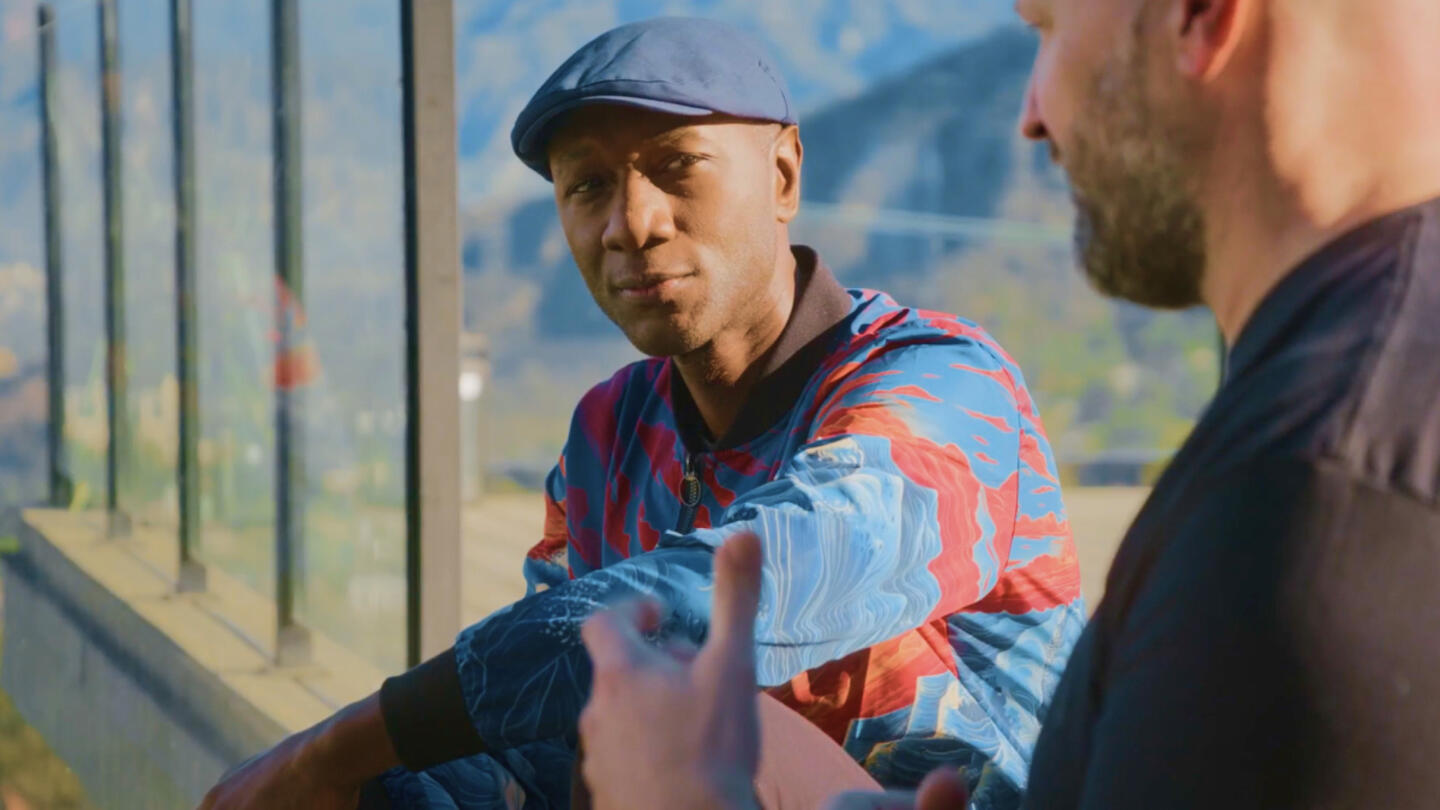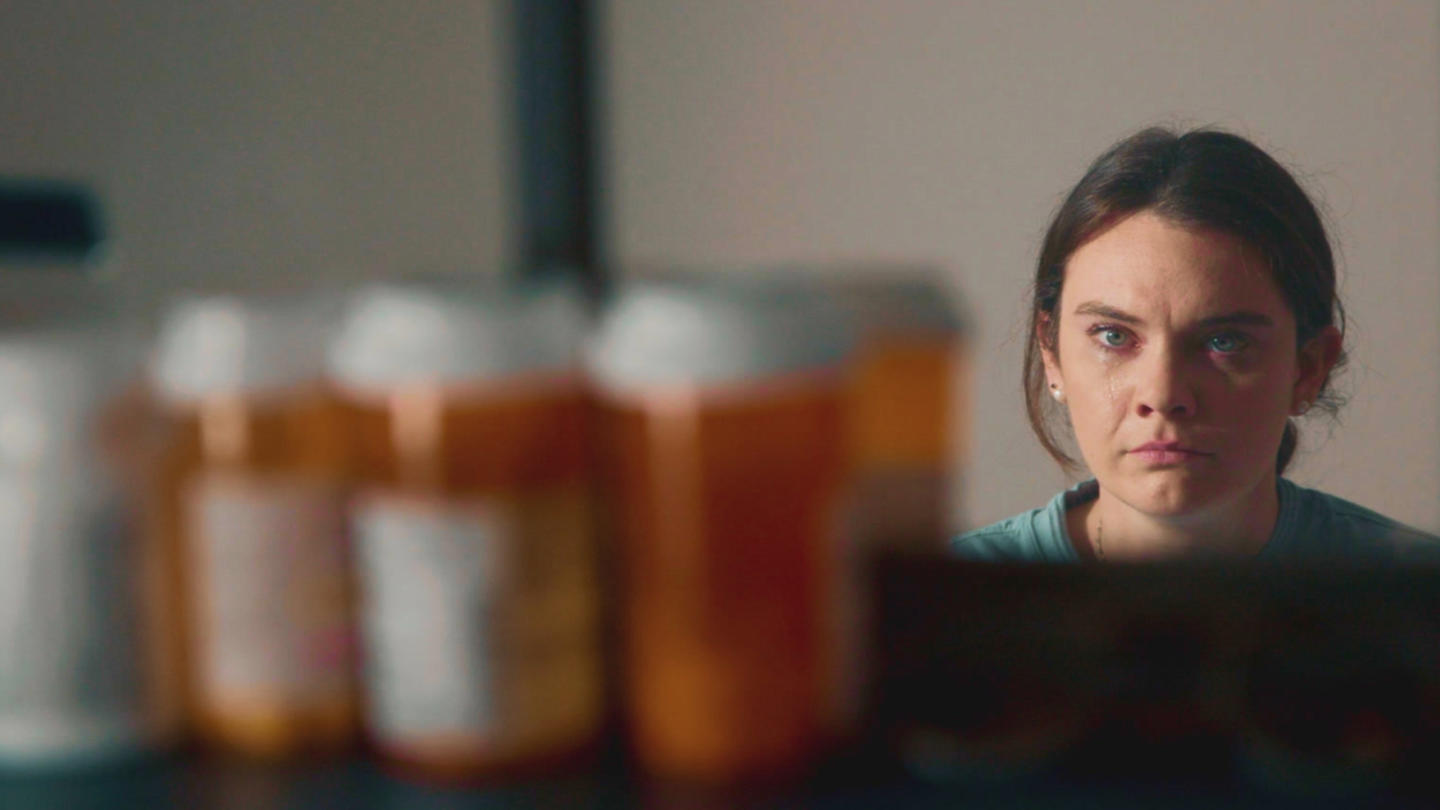Addiction in the United States is rampant. In 2023 alone, over 112,000 people died of drug overdoses — even with the number of organizations dedicated to helping people go into recovery.
So what’s going on?
It’s not just the programs — it’s what comes after. Or rather, what doesn’t.
“It’s because when they leave the other side of that program, there’s very little support helping them stay sober,” said Scott Strode, founder of The Phoenix, an organization focused on using recreation to maintain sobriety.
And, it’s what comes before.
“People wonder how they made the choices that led them to where they are in life,” said Becca Stevens, founder of Thistle Farms, where women in recovery build financial freedom. “I think it’s better to say, ‘If that was the choice somebody made, what were their options?’”
But even before getting to treatment, so much of someone’s experience battling addiction is impacted by the attitudes and misconceptions that society has about substance use.
“I grew up thinking that this was bad people doing bad things,” said Christina Dent, founder of End It For Good, an organization that educates the public on the harms of the War on Drugs. “I came to see that I didn’t understand the problem.”
These statements come from three changemakers who are rethinking the way we view, treat, and support people grappling with addiction. Their insights can change everything about how we think about recovery and how we can build pathways that actually work.
“If we want to find better solutions, we’re going to have to step outside of our comfort zones,” Dent said.
People in addiction need medical care, not prison cells
When thinking about solving this pervasive problem, most people start with the methods we use to treat addiction. But Dent thinks it’s the societal stigma we start with that creates the biggest barrier to a solution.
Why? Because she was guilty of believing that stigma herself.
“Prior to becoming a foster mom, I thought, it’s bad people who use drugs, and it’s really bad people who become addicted to them,” said Dent.
But as a foster mom, she had a mother-to-mother encounter that changed her entire perspective. While fostering a baby boy whose mother had used drugs while pregnant, Dent met the biological mother in person — and that changed everything.
“I could not understand how a mom who loved her child could possibly use drugs while she was pregnant,” Dent said. But at the very first visit she took her foster son to, Dent witnessed his mother “running towards me, weeping, and she starts kissing this little baby.”
“I was so confused,” Dent said. “If she wanted the baby this much, why wasn’t that enough to overcome the addiction she was struggling with?”
Dent realized she must be missing something. The closer she became with her foster son’s mom, the more she began to understand the truth about addiction: Substance use wasn't a moral choice. More often than not, it was a “really complex health crisis.”
With that in mind, it seemed like proper treatment for addiction should be in a medical setting. After all, someone battling a chronic illness would be able to visit a doctor and receive the appropriate diagnosis and treatment plan without being penalized. But Dent knew that was far from reality.
The War on Drugs attempted to curb rampant substance use in America by criminalizing it. Regrettably, that only made the problem worse. Now, those struggling with addiction are treated as criminals instead of as patients — with many of them ending up incarcerated rather than able to access the help they need.
“I realized that the more trauma a person has in their life, the more likely they are to want to use drugs to numb those painful experiences,” Dent explained. “So why are we using criminalization, which is a system designed to create trauma, to try to fix a problem that is made worse by trauma?”
That’s the question that led Dent to start End It For Good, an organization dedicated to educating policymakers and the general public on how the War on Drugs has led to a system ill-equipped to support those struggling with addiction. Through podcasts, conferences, articles, and other materials, Dent hopes to change the narrative around addiction and shift the paradigm from shame and punishment to support and hope.
“This is not a criminal justice crisis,” Dent said. “This is a health crisis.”
Empowering women to be defined by more than their trauma
As Becca Stevens pulled up to the Tennessee Women’s Prison, she had quite a different thought in her head than others who’ve seen this barbed wire-enclosed institution: “It’s troubling to my heart knowing that so many of the women were victims long before they were criminals,” she said.
Incarceration might seem like an easy fix for addiction, but only 10% of prisoners struggling with addiction actually receive treatment while in custody.
On the other hand, receiving treatment rather than being imprisoned has the opposite effect: Individuals are five times less likely to die of an overdose if they’re in treatment. Unfortunately, once they finish treatment, that likelihood changes dramatically.
That’s what drove Stevens to start Thistle Farms, a nonprofit social enterprise focused on building financial independence for women who have survived prostitution, sex trafficking, addiction, and (often) incarceration.
On average, the women at Thistle Farms found themselves on the streets by age 15. That means their resumes are simply “blank spaces and time served,” Stevens said.
Thistle Farms fills in the blank spaces. It provides hundreds of thousands of hours of work, including the production and sale of items like candles, hand soaps, jewelry, and more. Since starting in 1997, Thistle Farms has spread nationally and helped over 12,000 women.
Being involved in these business operations also gives women something more important than a new line on their resume. It helps them build the confidence and skills they’ll need to become self-sustaining for decades to come, largely thanks to the relationships they forge at Thistle Farms.
“You need resources, you need advocates, and you need allies that can help you figure out a path where you get to choose, ‘This is really what I want for my life,’” Stevens said.
Sign up for the Strong & Safe Communities newsletter for stories, ideas, and advice from changemakers working with their neighbors to address the biggest problems we face.
Besides a steady job and supportive community, Thistle Farms also gives women safe housing. These three ingredients make all the difference in whether women’s lives are dictated by the trauma and struggles they’ve been dealt or if they’re empowered to tap into their full potential.
So far, most have followed the latter: 75% of Thistle Farms graduates are still sober five years later.
“That is really what freedom is about,” Stevens said. “It’s this idea that I can take care of myself. I can make decisions not under the impression of addiction.”
Less of an addict and more of an athlete, every day
Scott Strode might be better equipped than anyone to understand and support those struggling with addiction. He went through addiction and recovery himself — and he found a unique way through.
“Early in my recovery journey, I started getting into all these things — climbing, triathlons,” he said. “I didn’t know it at the time, but I was actually finding a new identity. Every time I crossed a finish line or stood on top of a mountain, I was actually a little more of a climber than an addict.”
That’s why he created The Phoenix, a community of sober individuals who use the transformative power of fitness to help each other maintain sobriety.
“When you get into early recovery, you can feel really alone,” Strode said. “You also have no sense of self.”
From boxing to climbing and everything in between, these activities build a support system around people struggling with addiction while showing them what they’re capable of achieving. That helps them build the confidence they need to rise above the trauma and struggles they’ve endured and begin to have autonomy over their own lives.
So far, The Phoenix’s active lifestyle focus has supported over 500,000 participants nationally.
“You start to identify more as yourself,” Strode said. “You can build on that and start to have these experiences that start to write the new chapter of your recovery story.”
This was perhaps never more evident than during The Phoenix’s trip to Moab, Utah. There, participants were led by guides and instructors on a rock climbing adventure that transformed more than just their physical abilities.
“You can almost see that fear: They’re tying into the rope, they’re looking up at the cliff,” Strode said. “[But] by the time they get to the top, all that negative self-talk that comes from the shame of addiction starts to melt away, and they start to see the possibility of who they can be in recovery. You’re kind of struggling through that together, and in that struggle, you build a bond, and in those bonds, you find the support you need to stay sober.”
It turns out those bonds hold a powerful key to recovery. Relapse rates after three months in conventional treatment are anywhere from 40% to 60%. In The Phoenix community, it’s only 17%.
According to these three leaders on the front lines of this crisis, it’s possible for everyone to overcome the snares of addiction in the United States — but recovery solutions need to focus on helping people believe in their own intrinsic strength and create a supportive community around them.
If more programs like End It For Good, Thistle Farms, and The Phoenix existed, maybe we could rewrite the narrative of addiction in America altogether — for good.
Thistle Farms and The Phoenix are supported by Stand Together Foundation, which partners with the nation’s most transformative nonprofits to break the cycle of poverty.
End It For Good is supported byStand Together Trust, which provides funding and strategic capabilities to innovators, scholars, and social entrepreneurs to develop new and better ways to tackle America’s biggest problems.
Learn more about Stand Together's efforts to build strong and safe communities and explore ways you can partner with us.

At this ‘resort,’ children with intellectual disabilities are seen as gifts to be celebrated and loved.

Veterans experience loss when leaving service. Could this be key to understanding their mental health?

The Grammy-nominated artist is highlighting the stories we don’t get to hear every day.

With his latest project, Blacc isn’t just amplifying stories — he’s stepping into them
